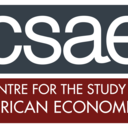ECONOMIC RESEARCH ON IDENTITY, NORMS AND NARRATIVES (ERINN) AND ITS APPLICATIONS TO AFRICA
To escape poverty, all societies need key state institutions to function properly. Modern academic understanding of the development process stresses the critical role of a tax system (giving governments an incentive to grow the economy, and citizens to hold government accountable); courts and police (necessary for the rule of law); port and energy authorities (needed for key infrastructure); and the various public agencies needed for human capital formation (primary and secondary schools and health services). This is not exhaustive: evidently, modern societies depend upon a myriad of public agencies to support general prosperity.
The countries of the 'bottom billion' are stuck in poverty partly because although they all have agencies, which purport to perform these functions, in practice they are severely dysfunctional.
For example, tax inspectors pocket money for themselves instead of raising money for the state; judges and police take bribes to subvert justice; port and energy authorities are captured by special interests; teachers do not turn up for class. While this has been known for many years, social science has lacked a rigorous analytic framework within which it can be understood. Interventions based on the principal-agent model of rewards and punishments have proved difficult to implement and have had very limited success.
The aim of this project is to construct a new economics that embodies how people think which, in turn, affects how organisations function. In contrast to current economics, which “plausibly” assumes the motivation underlying people’s decisions, sociologists and anthropologists write ethnographies which empirically investigate these motivations. Under the leadership of Paul Collier, the proposed project promises to open up (one might say “revolutionise”) whole areas of economics. It will be especially useful to gain a better understanding of why organisations often fail to function in very poor countries. The motivation is based on George Akerlof and Rachel Kranton’s seminal work on identity economics. This has greatly generalised economics by making a much closer connection between the way people think, their decisions, and their social environments. One way to characterise human thinking is that we think in terms of “narratives.” Fundamental to sociology is the notion that we are motivated by the stories we are telling ourselves at the time of our decisions. Identity and norms are at the heart of those narratives, since they centre on who the protagonist thinks she (and others) is (their identities), and what she (and others) think they should do (their norms). In “The Cultural Foundations of Economic Failure”, published in the Journal of Economic Behaviour and Organisation, Collier has identified that identities and norms are formed in social networks. By putting together how the norms arise in those networks and adding these to traditional considerations of economics, he has given a new paradigm regarding motivation. This builds on his work in Africa. It proposes a simple new paradigm with important implications for almost every problem in the field of economics. It is especially relevant for sub-Saharan Africa, where current standard economics seems often to be misleading and result in dysfunctional economic policy. Collier has identified that a critical feature lacking is people's narratives and their role in determining whether organisations and governments are functional, or dysfunctional. He has identified why and how those narratives form as they do.
In summary, the proposed project will link the development of this new analytic thinking closely to the context of addressing the dysfunctionality of public organisations in poor African societies.
In order to achieve this goal, we will set up a new research Association called the Economic Research on Identity, Norms and Narratives (ERINN), which will draw on the global network of top scholars, to develop a viable a coherent empirical research program. The key role of the Association over the three-year grant period is to ensure that this intellectual endeavour will be brought forward, and to engage in dialogues with policy practitioners in African countries. A new research program will be established. The empirical work will include fieldwork piloting new approaches for organisational reforms which can be rigorously evaluated, establishing new measures of identities, norms, and narratives. It will incorporate how they emerge and evolve within social networks, and how designing policy tools can be used to target dysfunctional organisational norms.
This project is funded by the ERINN network and is part of the Centre for the Study of African Economies (CSAE)



